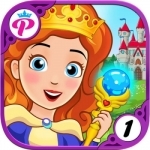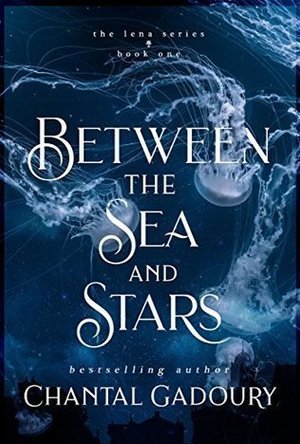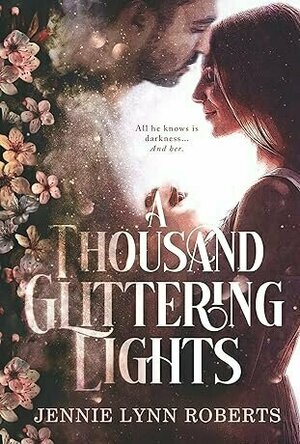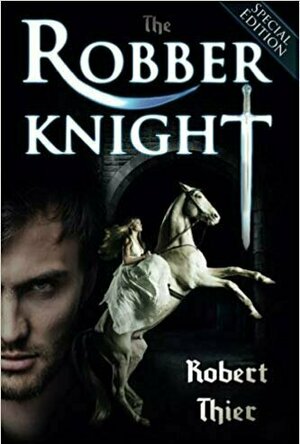
Cry Translator
Medical and Lifestyle
App
Now, you can easily figure out what your baby needs with the Cry Translator. This award winning...
Well, this was a weird one. I'm not sure what I was expecting, but it wasn't this. We are introduced to the sorority girls in the first chapter by a "chorus," who tells us who lives in each room and a small bit about each one. Except for Margot's room, we're told; Margot is dead.
Then the following chapters detail a snippet of time in each girls' life. Some chapters may take place before Margot's death; others take place after. I was really glad I was reading a hardcopy, because at the start of each chapter, I had to flip back to that first chapter about all of the girls and find that girl's little paragraph or so blurb that introduced them. I could never keep any of them straight--perhaps because there was so many or maybe because most them didn't really stand out to me.
Because yes: I didn't really love this one. The short bits of time spent with each character make it hard to get attached to anyone. While we are technically following the thread of Margot's death, there's really no arc to the story. The book probably speaks to some higher meaning that I just didn't get. Instead it's a bit disturbing (some of the chapters are really awful), and no one is happy at all, which was really depressing. Sure, some of these dark glimpses into people's lives can be a little oddly fascinating, but honestly, it was often horrifying too. For me, it felt like the book was trying to be literary and clever and it just didn't work for me (or, more likely, I'm just not a good candidate for literary, smart books, ha).
For instance, was this one praising or mocking sororities? I really don't know. Margot's death seemed so pointless, so it certainly didn't seem to be doing the idea of sororities any favors. A lot of the book didn't seem to show the sisterhood in a good light. Yeah, I just didn't get it. I'm not sure exactly why I slogged through it, except that the full details of Margot's death aren't completely revealed until the end. I actually liked Margot the best, but she was dead, and yes, that probably sums up this book the best for me.
Overall, this one was too weird for me. I can do dark, but dark, strange, no real plot, and few characters with any redeemable value--it just didn't work for me. I'm sure it is enjoyable for others, especially those that don't need a real plot arc. And I do feel the need to point out that there's a trigger for self-harm, suicide, and eating disorders in this novel.
Amanda (96 KP) rated Between the Sea and Stars in Books
Mar 11, 2019
So, I had the opportunity to receive an advanced copy of this book. I enjoy Gadoury's stories. This one was, of course, no exception.
Lena is a merrow (mermaid) helping her brother take care of their father. They aren't rich or poor, but they get by with Javelin's (brother) sell techniques for the market and Lena's hunting skills. Lena dreams of exploring the human world. She hears stories of the merrow queen and how she traded her fin for legs for the love of her life. Tragedy strikes, however, when Lena must flee from the sea to avoid punishment, or worse, death. With the help of the merrow queen, Lena is bestowed a pair of legs and must leave her only family.
Lena is taken in by a poor family and begins working at an inn. Lena soon finds that not all humans are evil, like other merrows believe, but there are some that are truly awful.
First and foremost, do NOT go into this book thinking it's based on Disney. Disney did not write The Little Mermaid. Although the artwork is beautiful and the songs are catchy, it's not the original story. It is a Little Mermaid retelling, but not Disney. So there will be no crabby sidekick, lol.
I loved Lena. She was headstrong and while she had to adjust to whole other world, she was still the same Lena, just heart broken and trying to manage. Merrows have the same views for female merrows. They are expected to marry and bare children and be taken care of. While Lena toyed with the idea when she is proposed to by an old family friend, she's still hesitant.
Lena meets Edwin, a blind old man who can read cards...and knows what she is. We like Edwin, so don't judge. Jace (young son) was the one who found Lena on the beach and brought her to the inn. I'll try to stop there so I don't spoil anything.
I love Gadoury's writing style. You get a clear picture of Lena as a merrow and as a human and what she experiences, good and bad. There are these connections to Lena's life that involve the merrow queen, and her mother. You have to read the story.
My only complaint...
I must wait for a second book!! Oh well.
Grab this book and experience a new story under the sea.

Who Is The Killer (Episode I)
Games
App
"We would personally recommend everyone to try this game, especially those who love brain teasers....
Neon's Nerd Nexus (360 KP) rated The Secret Life of Pets 2 (2019) in Movies
May 24, 2019
Gareth von Kallenbach (980 KP) rated How To Be Single (2016) in Movies
Aug 6, 2019
Directed by Christian Ditter and loosely based off of Liz Tuccillo’s novel How to Be Single the film is actually quite relatable. While it is not a necessity to be single, finding yourself is an essential part of life and people should explore new opportunities no matter what others tell them. As far as the acting goes, it was ok but nothing Oscar worthy. Also for a romantic comedy I feel this movie is more relatable then most, it shows that love isn’t perfect and instantaneous. I would recommend this film to people who are going to have a girl’s night, because to its core this movie came down to friendship. Would I see this film again? Sure, Rebel Wilson’s one liners in the film were hilarious and kept me hooked.
Debbiereadsbook (1650 KP) rated A Thousand Glittering Lights in Books
Jun 9, 2024
Jennie Lynn Roberts has become a firm favourite, her first book blew me away and I'm still struggling to catch my breath! But those books were fantasy/paranormal, and this is a contemporary romance and I wasn't sure how I was gonna feel about this book.
I need not have worried! I loved this book, massively!
It has some many layers and subplots, or at least I thought they were subplots, until everything start to merge together and things become much MUCH clearer! I wasn't confused, not really, just at times I felt I was reading those subplots as multiple books. Once things started to come together, however, those subplots made much more sense.
I loved how I just let myelf fall into this, along with those plots, and didn't really try to figure it out as I went. I usually do, trying to put 2 and 2 together to get 4, but for some reason, I let myself flow with the book. And I am so glad I did, because I didn't see it taking that route! Ok, so maybe I did try, but only a little.
I loved that we heard not just from Ellie, but alos from the male MC and some others. I wasn't WHY we were hearing from them, as I was reading, but I have to say, they were absolutely needed for those plots to come together. Roberts NAILED how Victoria (Ellie's best friend) was dealing with things, she absolutely did.
I can't go too much into what I loved most about this book, for spoilers, but know this: I loved this book and the way it went! I cried a lot, and cheered a lot. It's deeply emotional, not just for Ellie, but for out male MC. Because :
All he knows is darkness… and Ellie.
And never has there been a more perfect tag line!
I can't fault this book, I really can't. I'd love to be able to give it more, but I can't so...
5 full and glittering stars
*same worded review will appear elsewhere
Kara Skinner (332 KP) rated The Robber Knight in Books
Sep 10, 2019
Sir Reuben, the dreaded robber knight, has long been Ayla’s deadliest enemy. He has prayed on her and her people ever since her father fell ill, and she swore he would hang for his crimes. Now they are both trapped in her castle as the army of a far greater enemy approaches, and they have only one chance: stand together, or fall.
This book wasn’t bad, honestly. I’m a huge fan of historical fiction, and it had been awhile since I’ve read a medieval love story, so that was a nice change of pace.
The author is a historian, so there are a lot of little things in this book that you don’t see in a lot of other historical romance books. For instance,you can’t pull out arrows because there are often barbs attached to cause fatal wounds if pulled out. I did like learning about all of these facts. But sometimes Thier lets the historian in him gets the best of him, but more on that later.
Lady Ayla was a pretty interesting character. Headstrong and wise for her years, she is very noble and progressive. She has all of the makings for a great leader– with the exception of knowledge. I loved how kind and committed she was to her people and I love the fact that she has some spunk. I mean, if I’m getting robbed in the forest by this random stranger, then I hope I would swear him out too (of course, if I could beat him up and get away, then that’s even better, but Ayla doesn’t have much self-defense skills). But there were many times that she was annoying, like her insistence on being near battles, even before she started treating the sick. And how she tried to manage Sir Isenbard during battle. She had called on him for help because he was an experienced knight, and now she was questioning his commands and strategies in the heat of battle!
Mostly, though, I really did like Ayla. She defines the idea of nobility. With war inevitable, she’s willing to ride personally to the edges of her land to warn her subjects and she is always at the outskirts of battle to help care for the wounded. She invites everyone into the castle for their safety and rations herself as well as the others to conserve food. She’s even willing to corrupt herself to save her people.
Reuben is an excellent character as well, although it did take me awhile to like him. In the beginning he fell a little flat. It’s clear that he used to be a knight but something happened and now he robs people for his own greed. A near-death experience and being saved by Lady Ayla reawakens the humanity in him. And apparently also some depth.
In the beginning of the book he spends a lot of his time admiring his loot and laughing about his victims, who thought they had a right to steal from him. But that’s all he does. We have no real insight into his character or backstory until after he’s in Ayla’s care. Only then are there hints of a bad history where he had been arrested many times, been tortured, and had at one point been a member of respectable society. If it weren’t for the fact that I liked Ayla’a character and the plot so far, I probably would have stopped reading.
Thier is a writer who has really good potential in becoming a great romance writer, especially for historical fiction. The plots have some unique twists that are augmented by his knowledge of history and after Reuben’s character shaped up, he was an excellent love interest. But there is one huge problem with this story: the footnotes.
There are so many footnotes throughout most of the book that I feel like I’m reading a history textbook, which is not good when I usually read romance novels to take a break from homework. Not only are they distracting and unnecessary, but they are also rude and condescending. Sure, sometimes they were useful, like in explaining the references to the seven princes of hell. Another one was a pretty funny anecdote about how one of his readers had actually confirmed that lard burns and that burning arrows work because they had actually done it. There is also a lot of wit throughout the footnotes which is pretty amusing. But most of the time, they were annoying.
For instance, Robert Thier thought it was necessary to include a footnote about how witches were considered bad during medieval times. Seriously? Even if someone failed history, we know that witches are not considered fine, upstanding citizens. Or maybe he thinks all of us have been locked in our rooms with no books, internet or television for our entire lives and for the month of October we all miraculously fell into a coma so we couldn’t see the giant blow-up witch in the neighbor’s yard. And then we’d all wake up singing Christmas carols after the month long coma without a care in the world because this happens every year so we don’t know what a witch is. (I’m developing a conspiracy theory about how these strange comas was caused by witchcraft.)
Maybe Thier assumed that instead of us thinking Reuben was scared of witches when he wondered if Ayla was one, we just thought he was commenting on how much Ayla looked like Sandra Bullock.
And one of the footnotes was just plain offensive. Here is the line of text that the footnote is attached to: “Heel! Abominable villain! You dare defy me?” (page 74)
Now, here’s the footnote: “Sorry to disappoint the ladies, but this doesn’t refer to high heels. It is a medieval term for a very nasty person.”
Excuse me? Did you just assume that I thought it meant high heels and that would make me excited? What world do you live in?
Apparently he thinks “the ladies” are so dumb that we are incapable of taking context clues and we immediately think everything relates back to fashion. Maybe I didn’t know it meant “very nasty person”, but it’s pretty clear it’s a swear or insult of sometime, not a freaking Jimmy Choo. Does he just imagine us thinking high heel every time we hear the word?
“She broke his nose with the heel of her hand.” Oh. High heel!
“Heel, fido! I said heel!” Oh. High heel!
“It will take one or two days for your cut to heal.” Oh. High heel! (Because if he thinks we don’t understand the difference between uncomfortable footwear and an insult, then he probably thinks we can’t spell, either).
But hey, at least Robert Thier thinks women can memorize stuff, because the footnote links stop as the vocabulary is repeated instead of new terms being introduced.
Aside from the footnotes, I really do like this book, and I can’t wait to read the second part of it, which I’ll read soon. Thier still has a long way to go, but I think after he has more experience, he’ll write some great books.

Ab Trainer X FREE+ Six-Pack Abs Exercises Workouts
Health & Fitness and Sports
App
√ Over 565,000 downloads worldwide and counting. Join the ab revolution and download today √...

My Little Princess : Castle
Games and Entertainment
App
From the creators of My Town comes a new dollhouse adventure called My Little Princess! Imagine a...





